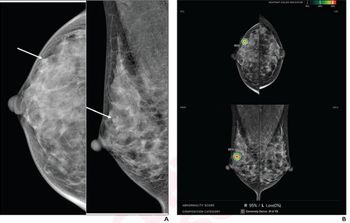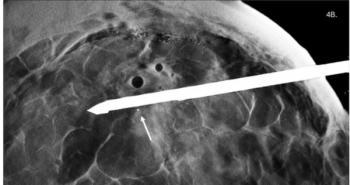
Women Who Have Screening Mammograms Tend To Use Other Preventative Services
Screening mammography compliance often indicates if women will take advantage of other preventative services.
Women who undergo screening mammograms are more likely to use other preventative services, according to a study published in the journal
Researchers from NYU School of Medicine in New York, Emory University in Atlanta, Ga., and the Harvey L. Neiman Health Policy Institute in Reston, Va. sought to assess if there were associations between compliance with mammography screening services and other preventative services, such as the Papanicolaou test, bone mass measurement, or influenza vaccination.
The researchers retrospectively assessed data from 185,625 women who underwent mammography from 2010 to 2014, which was compared to a control group of women who did not have screening mammography.
"There were two overarching ideas to this study," Stella Kang, MD, MSc, an assistant professor of radiology and population health at NYU School of Medicine, said in a release. "First, we wanted to examine the potential for a patient's experience with one screening to influence appointments with other preventive services. Second, we wanted to see how the potential harms from false-positive findings might influence preventive service use."
The screened group was divided into positive versus negative results at screening, and the positive subgroup was divided into false-positive and true-positive findings.
The results showed women who underwent index screening mammography, regardless of the results being either positive or negative, were more likely than unscreened women to later undergo Papanicolaou test or bone mass measurement, or receive the influenza vaccine. In women who had not undergone these preventive measures in the two years before screening mammography, use of these three services after false-positive findings at screening was no different than after true-negative findings at screening.
"It's encouraging that women for whom services are received through Medicare are not showing significant signs of any negative influence from mammography," Kang said. "If anything, the experience of breast cancer screening is potentially encouraging, as it appears to increase awareness of other preventive services."
The researchers theorized that mammography screening represents an opportunity to provide information to women about other preventive services and the health benefits of these services for women in their age group.
Newsletter
Stay at the forefront of radiology with the Diagnostic Imaging newsletter, delivering the latest news, clinical insights, and imaging advancements for today’s radiologists.














